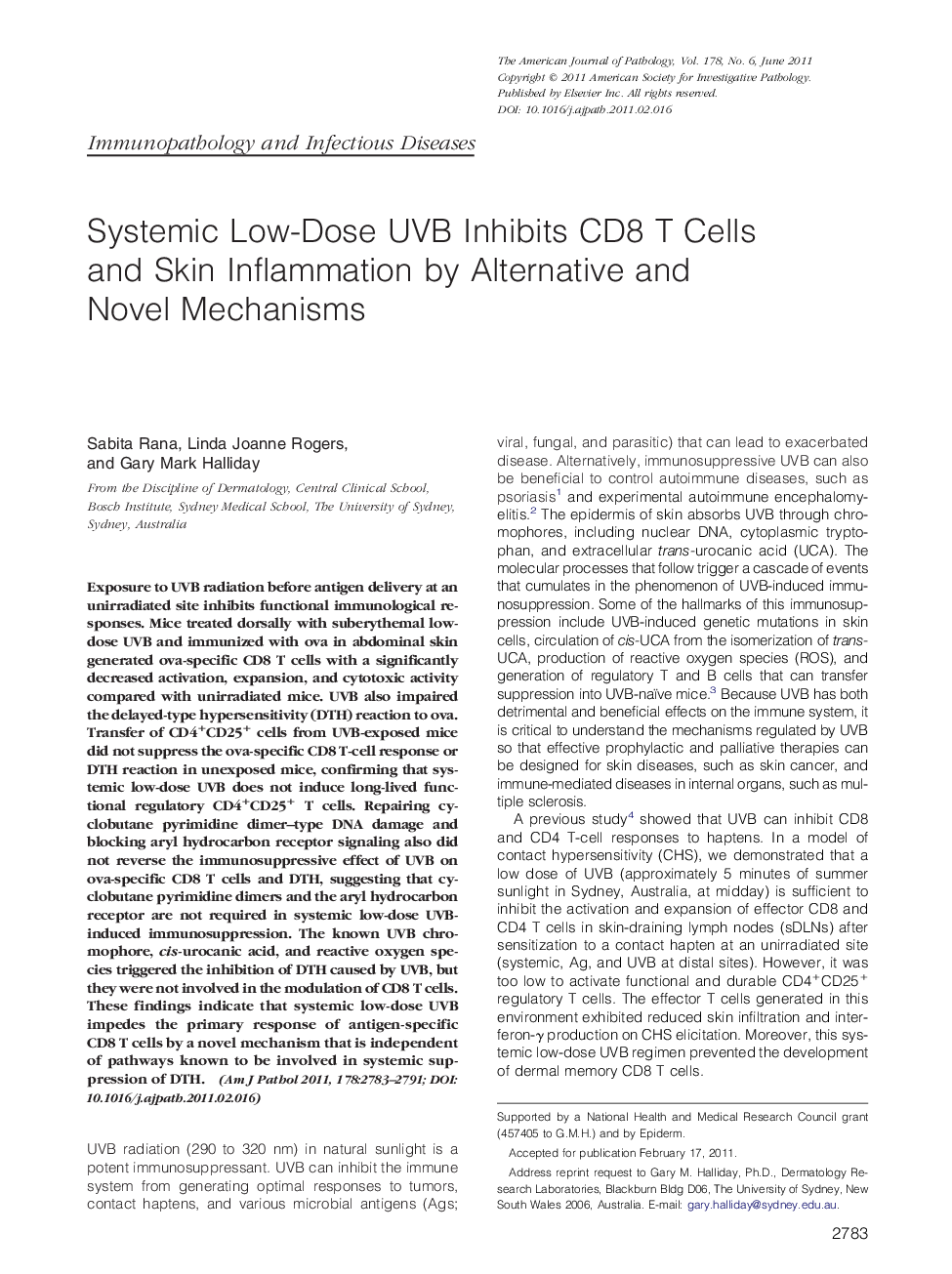| Article ID | Journal | Published Year | Pages | File Type |
|---|---|---|---|---|
| 5939523 | The American Journal of Pathology | 2011 | 9 Pages |
Abstract
Exposure to UVB radiation before antigen delivery at an unirradiated site inhibits functional immunological responses. Mice treated dorsally with suberythemal low-dose UVB and immunized with ova in abdominal skin generated ova-specific CD8 T cells with a significantly decreased activation, expansion, and cytotoxic activity compared with unirradiated mice. UVB also impaired the delayed-type hypersensitivity (DTH) reaction to ova. Transfer of CD4+CD25+ cells from UVB-exposed mice did not suppress the ova-specific CD8 T-cell response or DTH reaction in unexposed mice, confirming that systemic low-dose UVB does not induce long-lived functional regulatory CD4+CD25+ T cells. Repairing cyclobutane pyrimidine dimer-type DNA damage and blocking aryl hydrocarbon receptor signaling also did not reverse the immunosuppressive effect of UVB on ova-specific CD8 T cells and DTH, suggesting that cyclobutane pyrimidine dimers and the aryl hydrocarbon receptor are not required in systemic low-dose UVB-induced immunosuppression. The known UVB chromophore, cis-urocanic acid, and reactive oxygen species triggered the inhibition of DTH caused by UVB, but they were not involved in the modulation of CD8 T cells. These findings indicate that systemic low-dose UVB impedes the primary response of antigen-specific CD8 T cells by a novel mechanism that is independent of pathways known to be involved in systemic suppression of DTH.
Related Topics
Health Sciences
Medicine and Dentistry
Cardiology and Cardiovascular Medicine
Authors
Sabita Rana, Linda Joanne Rogers, Gary Mark Halliday,
